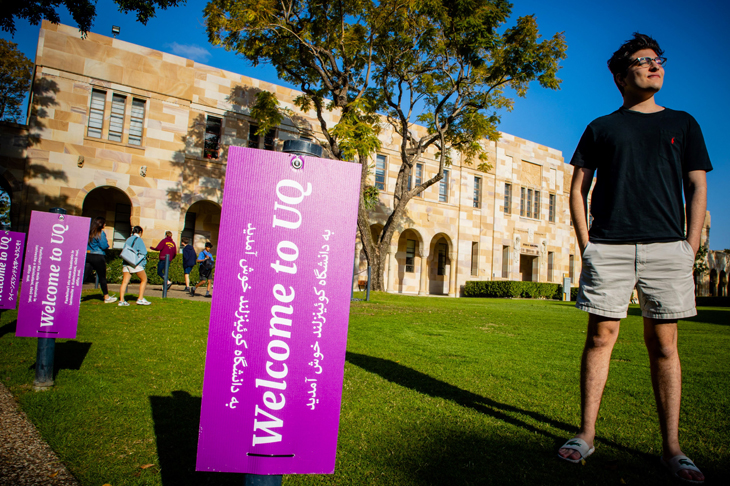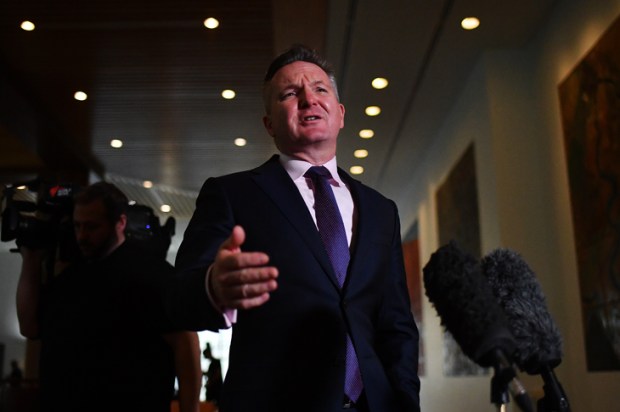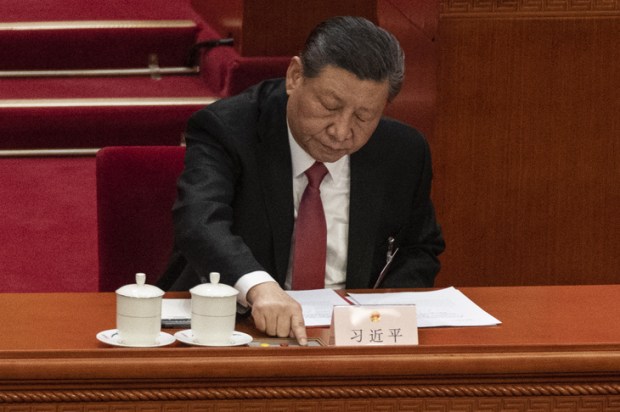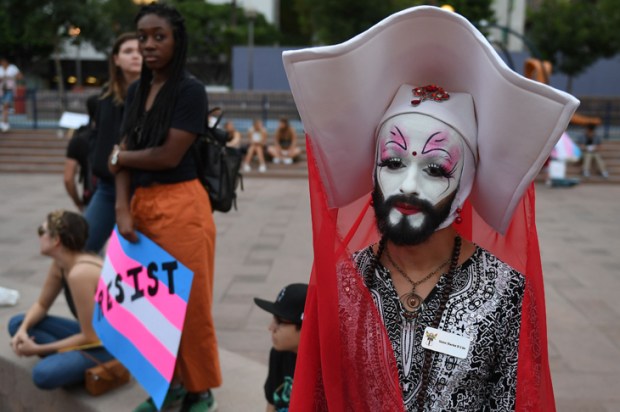I t is tragic fact that there is not a single, identifiable free speech partisan in Team Morrison’s Cabinet. In practical terms they have done nothing to help free speech in our universities — and no, it’s useless appointing another ‘great and good person’ to review how things stand (I could tell them in two minutes) and what policy statements and procedures might need to be adopted by our left-wing-dominated universities, and then have this person write yet another report of dubious worth that will gather dust. That does not count as standing up for free speech in our universities. Not with what happened to Peter Ridd at James Cook University and the Coalition’s complete lack of response. Not with the stifling conformity in upper level university management in this country that brings all sorts of indirect limits on free speech. Team Morrison, tomorrow, should make clear that all universities must adopt the Chicago Principles as regards free speech, which is good enough for Princeton University and the University of Chicago and some other stellar US universities and has more oomph than the French Report proposals. And if an Australian university doesn’t do that, fails to entrench the free speech-protecting Chicago Principles, then the Feds should cut their funding significantly. Boom! By no means would that suffice to fix the huge speech problems in our universities, but my Lord it would be a terrific start. Alas, it would take a real commitment to freedom of speech and freedom of thought and so, for that reason, we know the Morrison government won’t do it.
As I’ve said before, Mr Morrison has made clear that he has no strong commitment to free speech, or freedom generally, or small government, or indeed anything that distinguishes him from a careerist social democrat politico who loves government intervention into everything and who has no inclination to fight on any front whatsoever in the culture wars.
From those depressing reflections, I meandered into speculations about the paradox of free speech, which is this: free speech requires that we do NOT suppress erroneous or distasteful or offensive speech, even when it is obviously so. This is true even of the speech of those who are opposed to free speech – which ranges from those who push freedom-stifling hate speech laws and those who want to censor political views they dislike, all the way to those almost wholly opposed to all free speech. Partisans of free speech need to allow the speech of those fundamentally committed to limiting free speech (stand up Human Rights Commissioners, top university bureaucrats, big corporate HR departments, Big Tech, sadly, the list goes on and on). But they in no way reciprocate. Sure, they may make vague genuflections in the general direction of some amorphous notion of ‘free speech’ but they don’t support it the moment they encounter speech they find offensive, dislikeable, politically unpalatable and so on. That’s the paradox.
My biggest intellectual hero, Scottish sceptical philosopher David Hume (recently cancelled, disgracefully, by the University of Edinburgh), once wrote an essay on freedom of the press. Hume’s view was that citizens in free countries rarely lose their liberty all at once. It happens in tiny steps. People get used to first this little inroad and then the next. After a wee while, most of us don’t even remember the freedoms that we’ve lost. And having lived through the last year, what reader would be foolish enough to gainsay the great man?
The recently retired British supreme court justice, Jonathan Sumption, noted that this past year has seen the biggest inroads into the individual liberties of citizens in Britain (and by analogy Canada, New Zealand and Australia) of any time in the last 250 years. But it turns out that most voters are sheep. Scare them enough and they put their supposed safety above all else, even when the evidence for the freedom-eliminating policies is close to negligible. A large-scale Danish study shows mask wearing has no discernible benefits. Who cares? Pretty clear evidence the worldwide lockdowns will see upwards of 100 million die early deaths in the Third World due to the economic carnage. Who cares? The average age of those who die of Covid turns out to be higher than both men’s and women’s average life expectancy – so it’s the really old who are dying. Who cares? Oh, and various studies that can find no discernible benefits to lockdowns in cross-country comparisons. Who cares? No freedom and no liberty is worth anything in the struggle to conform and not question. The realisation that so many people across the Anglosphere are such big government, fear-driven, pusillanimous sheep who don’t much care about the liberties their ancestors worked so hard to establish has come as a pretty big shock to me. I’d never have guessed what so many people would throw away for what amounts to a tiny increase in a year’s excess deaths — and it is tiny in Sweden, where they have not travelled down the authoritarian path. So no one can claim that there would have been deaths on the scale of the Spanish flu were it not for the heavy-handed, Chinese-inspired lockdowns and massive government over-reach.
Hume also made a claim about the scope and extent of reason. Unlike German philosophers such as Immanuel Kant, who thought reason could drive human action, Hume disagreed; ‘Emotion, feeling, sentiment, these drive all actions and all reason does is tell us how best to achieve what we have come to want’. Put differently, all moralising is based on feeling, it is not something anchored in reason. And boy has this pandemic proven Hume right! Once the fear porn press and heavy-handed governments characterised the lockdown response as the moral response — that we could and should ignore all those who died because of lockdowns -— any and all costs and steps to save those more at risk from the virus (in truth largely those with specific comorbidities and/or over 75) were wholly justified and never to be questioned. Once it was framed like this, it didn’t matter about the facts; they were trumped by feeling that you were a good person because you supported policies to save group X (regardless of how many indirect deaths this might cause in group Y.) This meant the majority supported heavy-handed, freedom-enervating policies. Virtue-signalling kicked in and most support the ‘moral’ course of action.
Hume’s view of reason was vindicated in the pandemic and it has always seemed more accurate to me. The good news is that at some point, people’s sentiments will shift. My guess is that it will happen when the effects of the huge government spending become clear and then Mr. Morrison and the even worst state premiers had better look out. In the meantime, we can all lament the lack of concern about liberty in Australia.
Got something to add? Join the discussion and comment below.
Get 10 issues for just $10
Subscribe to The Spectator Australia today for the next 10 magazine issues, plus full online access, for just $10.
You might disagree with half of it, but you’ll enjoy reading all of it. Try your first month for free, then just $2 a week for the remainder of your first year.














Comments
Don't miss out
Join the conversation with other Spectator Australia readers. Subscribe to leave a comment.
SUBSCRIBEAlready a subscriber? Log in